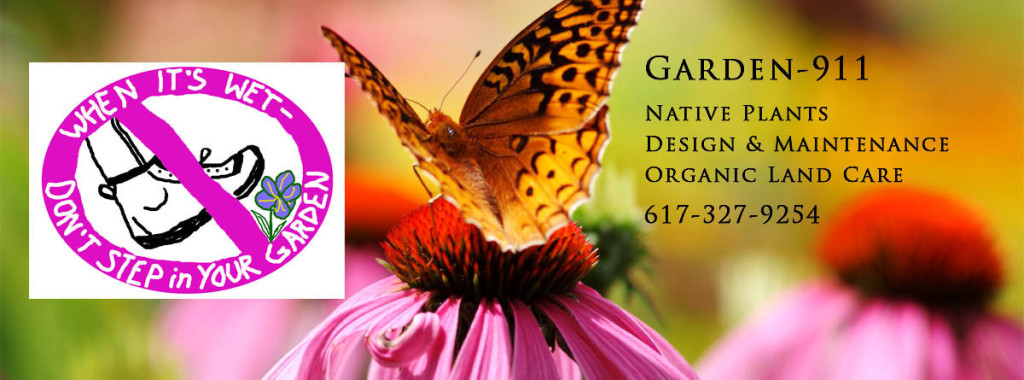Please join me at 7 p.m. tonight at the Easton Garden Club’s monthly meeting where I’ll be leading a free soil testing workshop and also presenting a brief tick talk. The meeting is at the Covenant Congregational Church on Centre Street, in the basement gymnasium. More comprehensive testing from UMass for fertility or fertility plus organic matter is available at a small extra cost. The Club will provide bags and ship your sample to UMass.
For each garden area you want tested, bring one clean one-quart clear glass jar and lid, with 3-1/2 cups of dry soil.
THE SINGLE MOST IMPORTANT THING ABOUT SOIL TESTING is to properly sample and let your soil air dry. Info and instructions are below.
What to Bring:
1 Clean, dry one-quart clear glass jar with fairly straight sides, with a tight fitting lid for each sample you want tested. A pasta sauce or mason jar works quite well.
3-1/2 Cups of dry soil in your jar for every sample you want tested. **REMEMBER to properly sample and dry your soil before putting it in your jar.
How to Sample Your Soil:
The most critical step in soil testing is collecting the sample. It is important that you take the necessary steps to obtain a representative sample; a poor sample could result in erroneous recommendations.
The first step is to determine the area that will be represented by the sample. For instance, your veggie garden might be one sampling area, your front island bed another, and your backyard lawn still another. Soil physical appearance, texture, color, slope, drainage, past management and current intended use should be similar throughout the area. It may be helpful to draw a map of the property and identify areas where you will collect samples.
Using a clean bucket and a spade, auger, or sampling tube collect 12 or more sub-samples to a depth of six to eight inches (four to six inches for turf) from random spots within the defined area. Avoid sampling field or plot edges and other non-representative areas.
Avoid sampling when the soil is very wet or within six to eight weeks after a lime or fertilizer application. Next, break up any lumps or clods of soil, remove stones, roots, and debris, and thoroughly mix sub-samples in the bucket. Once the sample is thoroughly mixed, scoop out a little more than one cup of soil and spread it on a clean sheet of paper to air-dry. A fan set on low will help speed the drying; do not apply heat.

